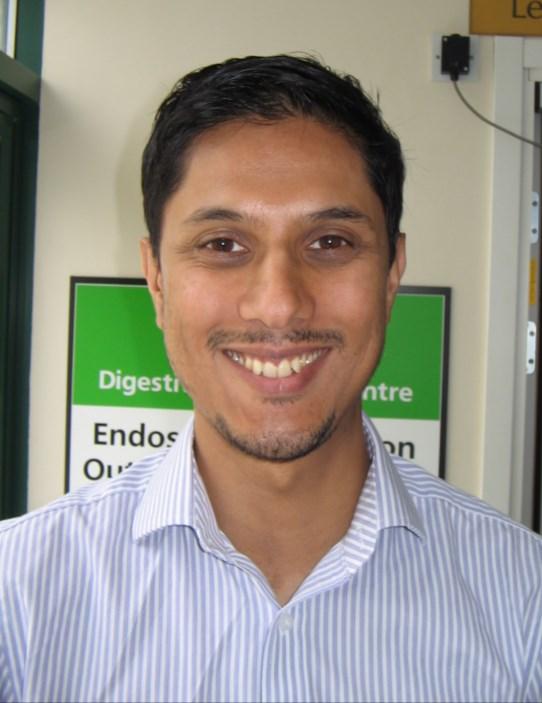
2 minute read
Gastroenterology
The Digestive Diseases Centre is a joint medical and surgical department within the Directorate of Abdominal Surgery and Medicine and managed by a multidisciplinary group.
The centre includes a combined medical and surgical GI ward with 58 beds. There is one endoscopy room at the Princess Royal Hospital (PRH) for upper and lower GI procedures and four endoscopy suites at the Royal Sussex County Hospital (RSCH) as well as a digestive diseases out-patient suite adjacent to the consultation and examination rooms. The purpose built endoscopy unit at the RSCH undertakes flexible sigmoidoscopy, OGD, ERCP, endoscopic ultrasound and colonoscopy. The RSCH has the only JAG-approved endoscopy training centre in South East England, outside of London, and has been running JAG-approved Basic Colonoscopy skills courses for the past five years. The unit also initiated the Bowel Cancer Screening programme across Sussex in 2008. The physician team comprises nine full time and one academic consultant gastroenterologists/ hepatologists, three F1 doctors, two CMT doctors, and five specialist trainees. Specialist interests include ERCP, cholangioscopy and EUS, oesophageal manometry/pH investigations, video capsule endoscopy, EMR/ESD, as well as nutrition and hepatology.
Advertisement
Teaching
The department offers an extensive local teaching programme and trainees are expected to participate in the weekly GI radiology meetings, hepatology
GASTROENTEROLOGY
meetings, GI pathology meetings, the IBD MDMs as well as the upper and lower GI cancer MDMs. Additionally, all trainees are encouraged to attend and present at the monthly clinical governance meetings and academic afternoons.
There are daily consultant-led ward rounds and twice a week specific nutrition ward rounds are performed. Trainees can attend the weekly inflammatory bowel disease ‘super clinic’ consisting of a consultant gastroenterologist, consultant colorectal surgeon, specialist GI pharmacist and IBD specialist nurse.
Research
Staff at the Digestive Diseases Centre are involved and lead on research projects into alcoholic hepatitis, hepatitis C
WHAT OUR TRAINEES SAY Dr Nabil Siddique
I chose to do my final year at BSUH because of the department’s nutrition and endoscopy, one of my subspecialties.

I am the senior Registrar and my post has a General Internal Medicine (GIM) commitment, however my GIM commitment is significantly less than in previous placements and I can spend more time on my work on the wards and in endoscopy.
The ward is well staffed with junior doctors and daily consultant ward rounds offer virus (HCV) infection, HIV related liver disease, as well as clinical trials assessing new HCV drugs.

Trainees are encouraged to contribute towards research activities within the department and further develop our innovative approach.
plenty of teaching and learning opportunities. The weekly timetable is very flexible and allows me to attend four endoscopy sessions as well as two clinics and I still have time to conduct my research.
I enjoyed working with the endoscopy team, because the unit is well run and the consultants are very supportive. I also appreciate that I have the opportunity to teach medical students and junior doctors and I find this aspect of my work particularly rewarding.
Living in Brighton is a fantastic experience with its cosmopolitan population and the lure of both the bright lights of the city and the wide open spaces of the Sussex countryside nearby. The sea is visible from most of level 9 in the Thomas Kemp Tower, where the Digestive Diseases Centre is based, which can be a much needed tonic after a long day.










